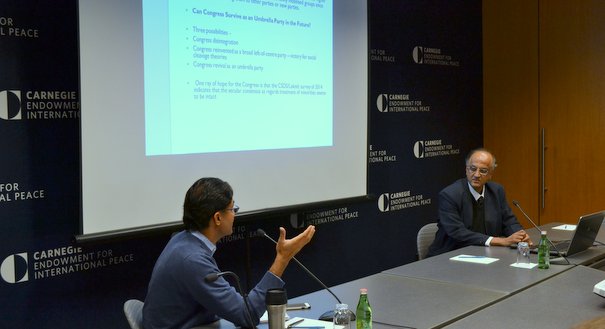Registration
You will receive an email confirming your registration.
For the majority of the seven decades since India won its independence in 1947, the Indian National Congress has been the country’s dominant political party. In the 2014 general election, however, Congress suffered its worst electoral defeat on record, and in subsequent months has lost several key regional elections in states it once controlled. This decline has raised questions about whether India’s “grand old party” can recapture its past glories.
A new paper co-authored by Eswaran Sridharan examines the longer-term trends underlying the party’s gradual decline. Sridharan discussed these factors and addressed the question of whether an umbrella party like the Congress can survive in a diverse society with politicized social cleavages and an increasingly federal political system. Carnegie’s Milan Vaishnav moderated.
Eswaran Sridharan
Eswaran Sridharan is the academic director of the University of Pennsylvania Institute for the Advanced Study of India (UPIASI) in New Delhi. He is a political scientist with research interests in party systems and coalition politics, political economy of development, and international relations theory and Indian foreign policy. His most recent book is Coalition Politics in India: Selected Issues at the Centre and the States.
Milan Vaishnav
Milan Vaishnav is an associate in the South Asia Program at the Carnegie Endowment for International Peace, where he works on the political economy of India.
